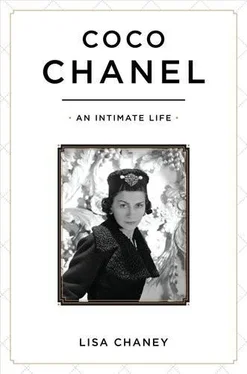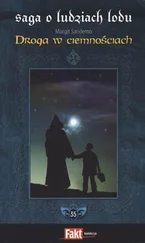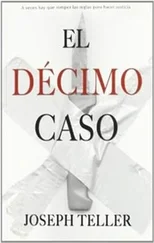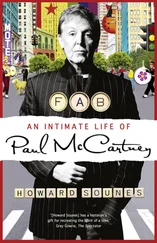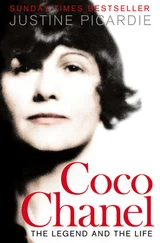Following their father’s premature death, Etienne was sent to private school in England by his uncle, Charles, in an attempt to instill some discipline into the boy. From England, he had sent home a telegram from his dog, Rex, saying, “My master has arrived safely, Rex.” He then bought two horses, which he used at the local fox-hunting meets. Etienne was obsessed with horses, and during his time away he paid little attention to his lessons. Neither, after the initial telegram from his dog, did he make any more effort to contact his family. Summoned home by Uncle Charles, Etienne was unconcerned. His despairing relation failed to appreciate that beneath Etienne’s apparent lack of purpose was the seed of a serious and disciplined calling. He was simply not interested in the same things as his uncle and informed him that under no circumstances would he enter the family firm. It was only with great reluctance that the young man was cajoled into military service.
To Etienne’s horror, his service saw him stationed with a foot regiment rather than the cavalry. This was insupportable, and he soon had himself transferred to a place where he could spend his time with horses. A series of events led to a posting to Algeria, in the African Light Cavalry, where he found himself very hot and very bored. Caught sleeping on sentry duty by the regimental governor, he was reprimanded for dereliction of duty. Etienne foolishly answered back (the regimental governor was in civilian dress and Etienne didn’t recognize him), was thrown in the lockup and was then to put on fatigues to clean out the latrines. This dented neither the young cavalryman’s confidence nor his unwavering purpose. It so happened that the regiment’s horses were suffering from an unpleasant skin ailment, and the wily Etienne made a deal with one of his superiors. If he cured the animals, he was to be transferred to a regiment back in France. To the vet’s amazement, Etienne succeeded, with a prescription he had learned about in England. And thus we find him in the 10th Light Horse at Moulins.
It was around 1904 that he met the pretty shop assistant Gabrielle Chanel and became one of the group of officers around her and Adrienne. Gabrielle would always remain secretive about this period, and would never say whom she had taken as her first lover. All we know is that at some point in the near future, she and Etienne Balsan would begin their affair. Meanwhile, her troupe of followers no doubt encouraged her in her belief that the stage was her calling. And so she left the relative safety of her job as a seamstress to try her luck on a grander scale. After much persuasion, the more cautious Adrienne followed Gabrielle’s example, and together they set off for Vichy and the season.
Only thirty miles from Moulins, Vichy was then one of the most fashionable spa towns in the world. The restorative properties of its spring waters had long been recognized and by the 1880s, acres of landscaped gardens were well established, boulevards and streets had been laid out, elaborate chalets and pavilions had risen up and a rail link connected the flourishing spa town with Paris. By the end of the century, Vichy had become a resort renowned for its worldliness, its sophistication and its visitors. Among these were many of Europe’s most eminent society figures and notable celebrities.
To while away the hours between one’s “cure,” there were recreational activities as glamorous as any that could be found in the capital. Monotony was forbidden at Vichy, and performers of the highest rank came, ready to oblige for the season. The greatest of the courtesans as well as their their less exalted sisters saw millions won, and lost, at the lavishly appointed casino. And while theaters catered to every taste, and the recently opened opera house drew some of the most distinguished singers of the day. The racecourse was one of the finest in France, and old and new money flocked to take the waters and entertain itself with lovers, mistresses and sometimes wives, too.
The visitors wanted mansions for their annual stay, and Vichy’s architects ransacked the history of architecture in a series of gestures, each more outlandish than the last. The anarchic mix of styles, from Byzantine to classical to the most grandiose art nouveau, reflected the baroque atmosphere of this glamorous and unreal town. Yet Vichy was not only for the rich; here all stations of society were accommodated and entertained.
The Chanel girls’ ignorance partially shielded them from their limitations. In outfits made by her own hands, Gabrielle strode about airily with her “nose up in the air.” By contrast with the modest pleasures of Moulins, the girls saw that Vichy was a world unto itself. Its lavish indulgence made a deep impression upon Gabrielle, and although, years later, she described it as a “ghastly fairyland,” for now, it was utterly “wonderful to fresh eyes.” Comparing Moulins to this “heart of the citadel of extravagance,” with astonishment Gabrielle realized that “cosmopolitan society is like taking a journey without moving: Vichy was my first journey.” 2
Adrienne, meanwhile, quickly realized that the stage was not for her and made her way back to Moulins. Gabrielle was now alone for the first time in her life and struggled on. Even the support acts, the poseuses , in Vichy were superior to the proper singers of Moulins. Gabrielle paid for lessons, was obliged to hire expensive gowns for auditions and tried to find her forte. Doggedly persevering, she longed for a Vichy manager to hire her.
How she supported herself at this point we don’t know, but any savings from her paltry wages can’t have gone very far. There has been speculation that she indulged in some discreet prostitution, as did some of her colleagues living in the backstreet rooms nearby. 3Another more likely possibility is that it was Etienne Balsan who partially supported her venture. We know that he visited her in Vichy, and by this point, they must have been lovers.
While Gabrielle complained that the resort was full of the elderly, she remained enchanted by its fantasy, admiring everything, even the engraved glasses used for the foul-smelling water gushing from the curative springs. Marveling at the cosmopolitanism of the town, she was entranced by the unintelligible foreign tongues she heard all around: “It was as if they were the passwords of a great society.” And in the midst of this “great society,” Gabrielle was led to a crucial personal insight: “I watched the eccentric people parade past and I said to myself, ‘There exist in the world things that I should be and which I am not.’” 4But for an epiphany to really change a life, it must be acted upon, and that would take some time.
At the end of the season, gravely disappointed, Gabrielle had to admit that no one was going to hire her, and she followed Adrienne back to Moulins. In spite of her retreat, she would always say it was Vichy that had taught her about life, opening her eyes and giving her a new goal. Meanwhile, Adrienne had fared well.
Maud Mazuel was a woman whom Adrienne and Gabrielle had known before they left for Vichy. Of undistinguished origin and unprepossessing looks, she had, nonetheless, created a discreet position for herself as chaperone and matchmaker at the center of local society. In her pleasant villa near Souvigny, outside Moulins, she brought women together with their lovers, without rousing the suspicion of their families. The local gentry and officers from the Moulins garrison knew that at Maud’s gatherings, they would find an entertaining mix of people appropriate to their own caste. In addition they could find attractive young women whose backgrounds had none of the luster of the other guests. Adrienne was beautiful, well dressed and sparkled in company, and Maud had made her the offer of respectability by inviting her to be her live-in companion.
Читать дальше
